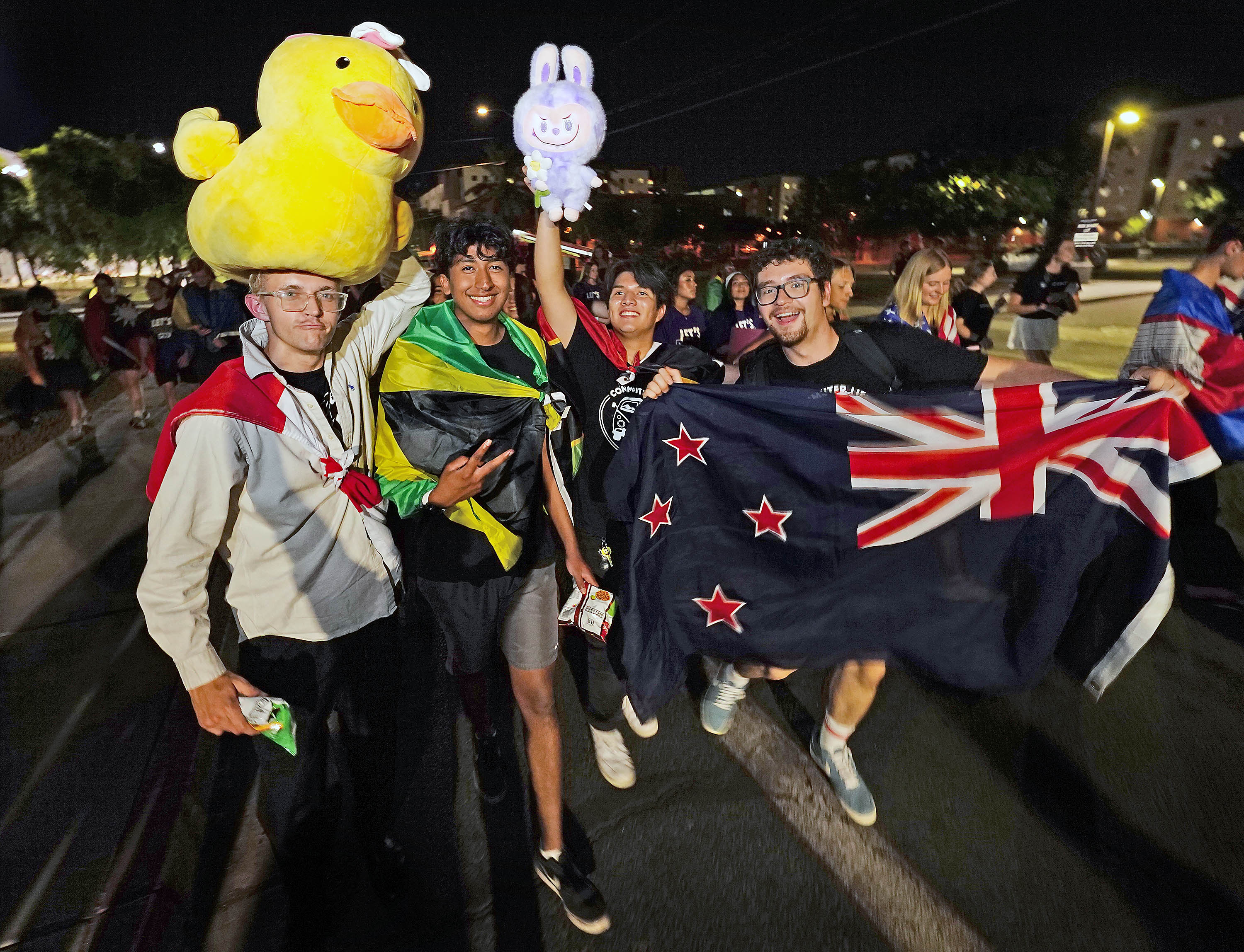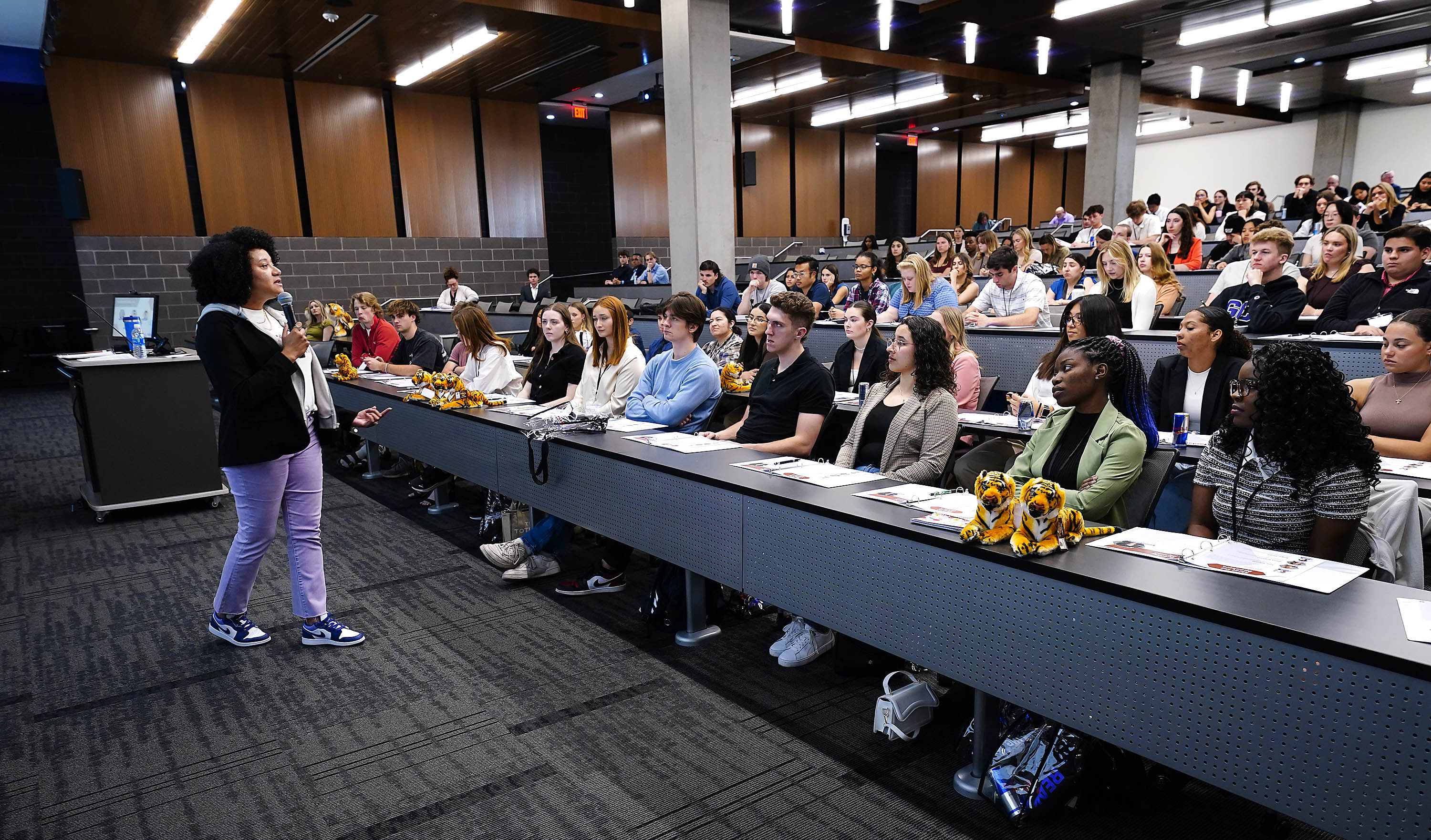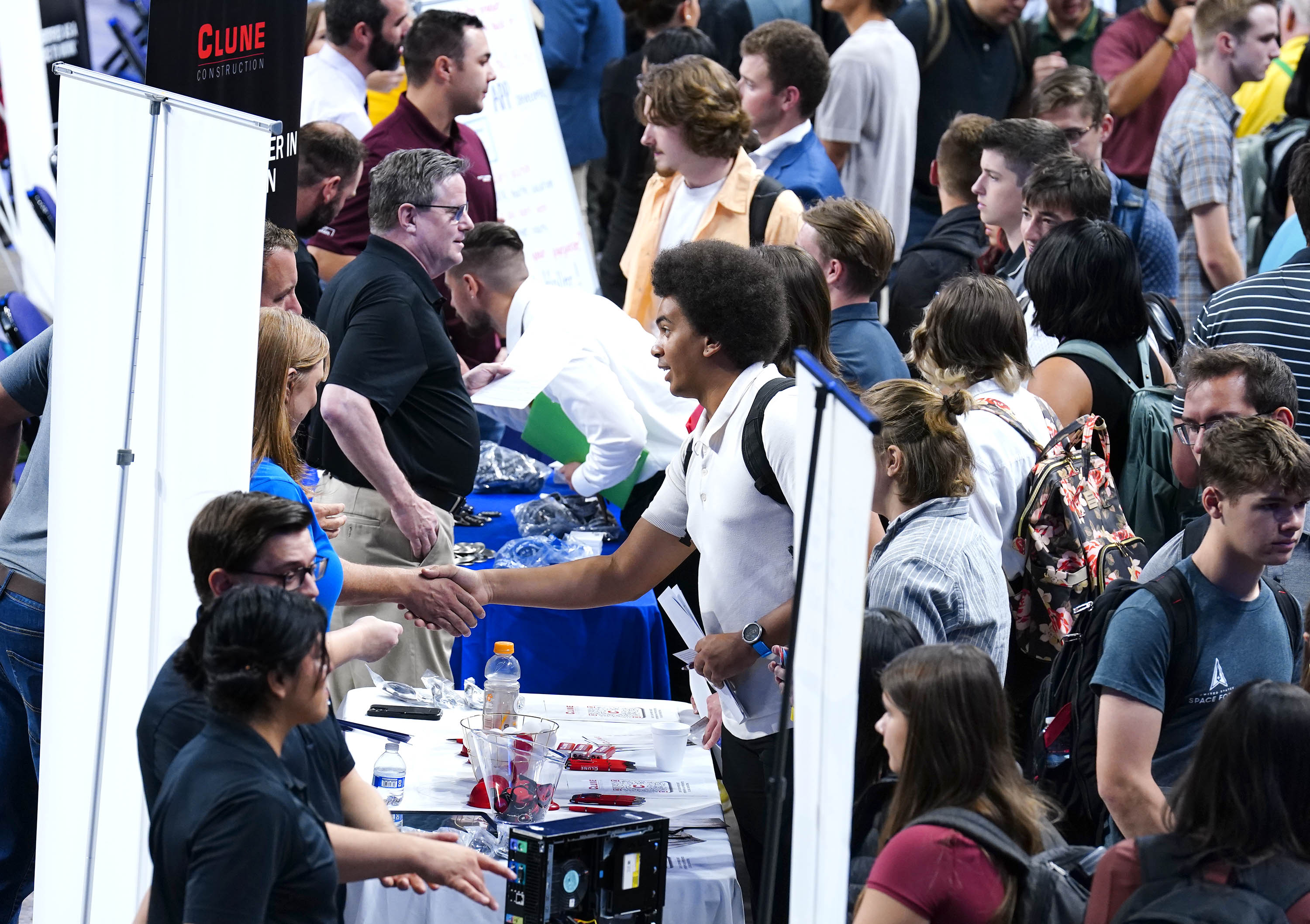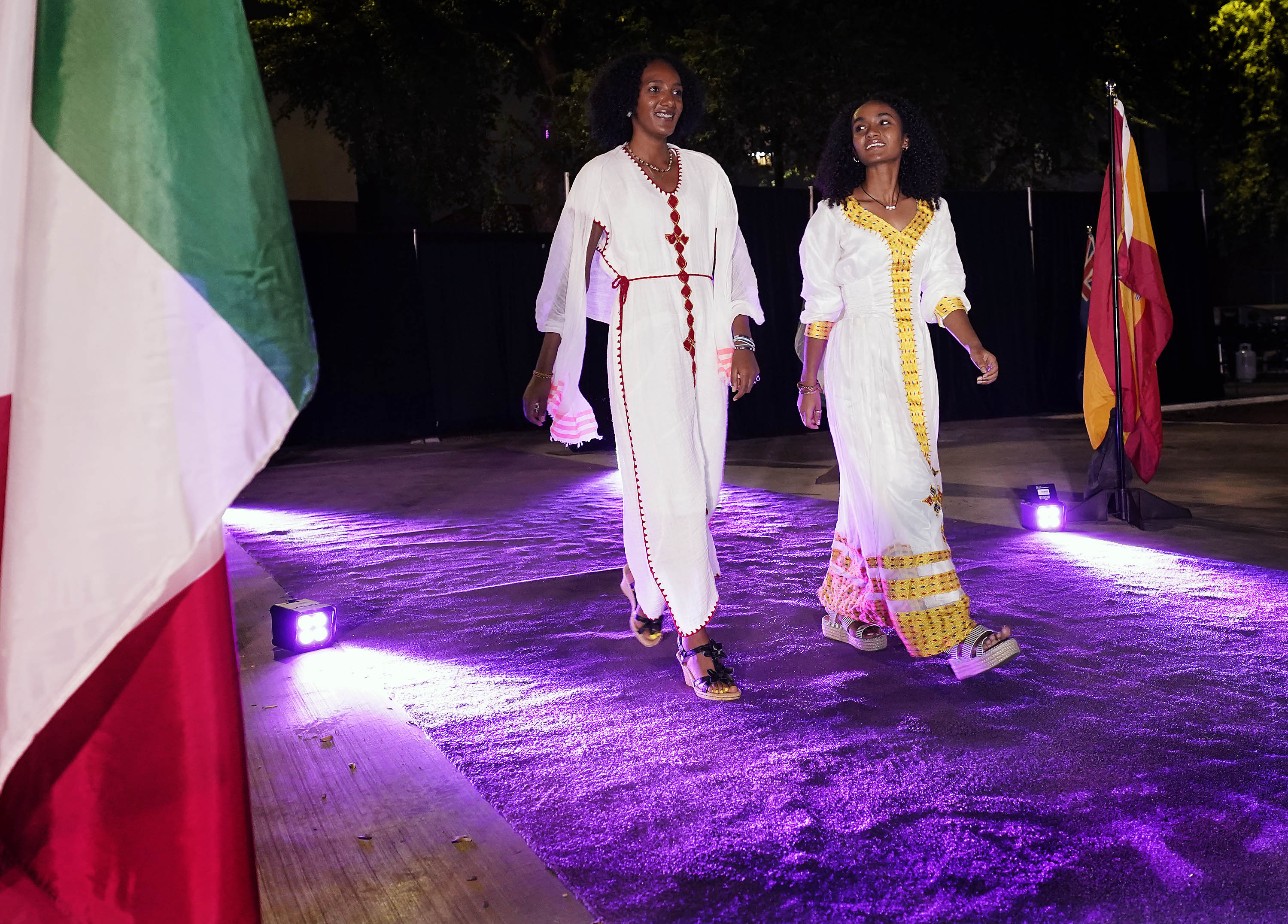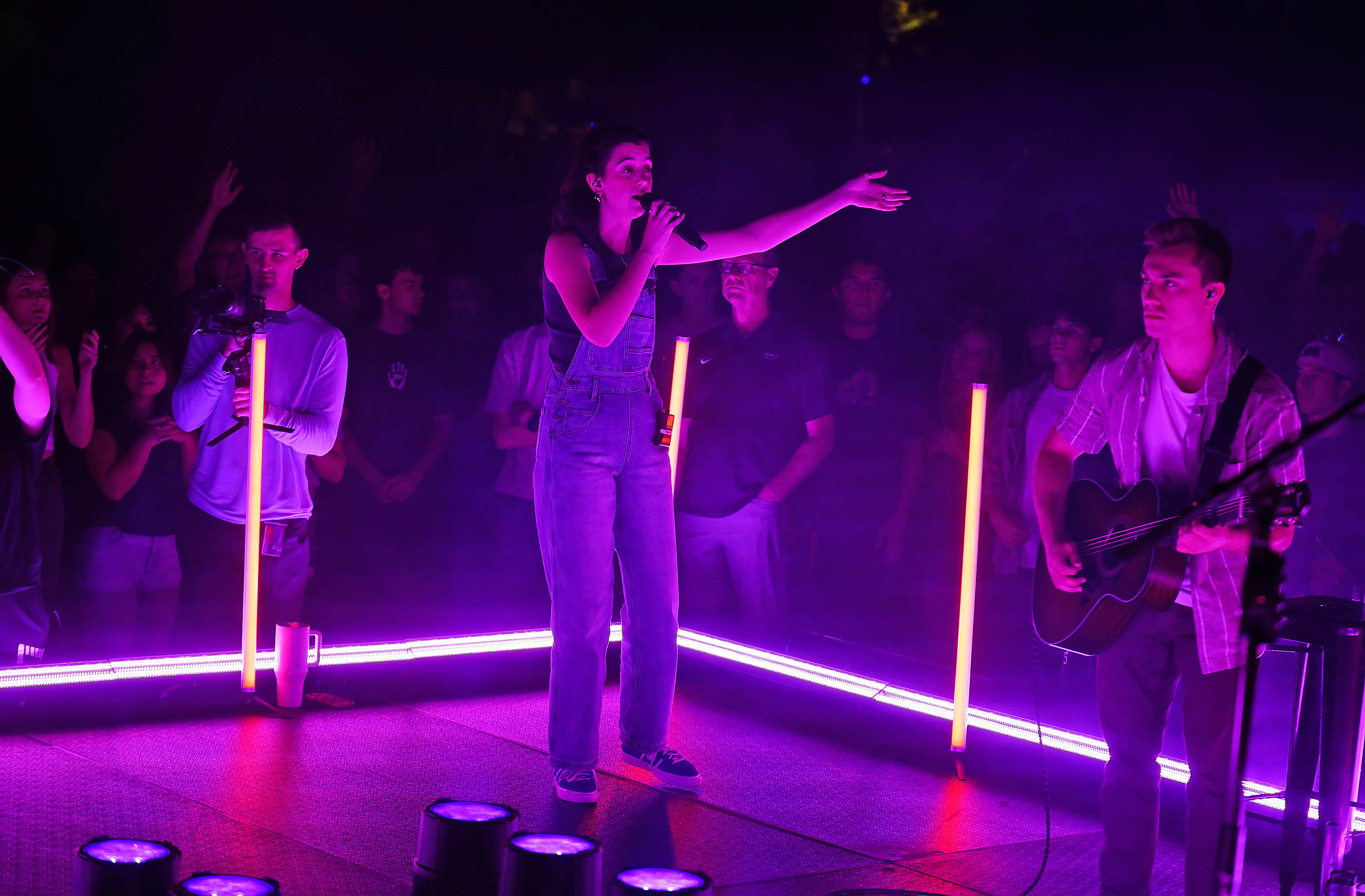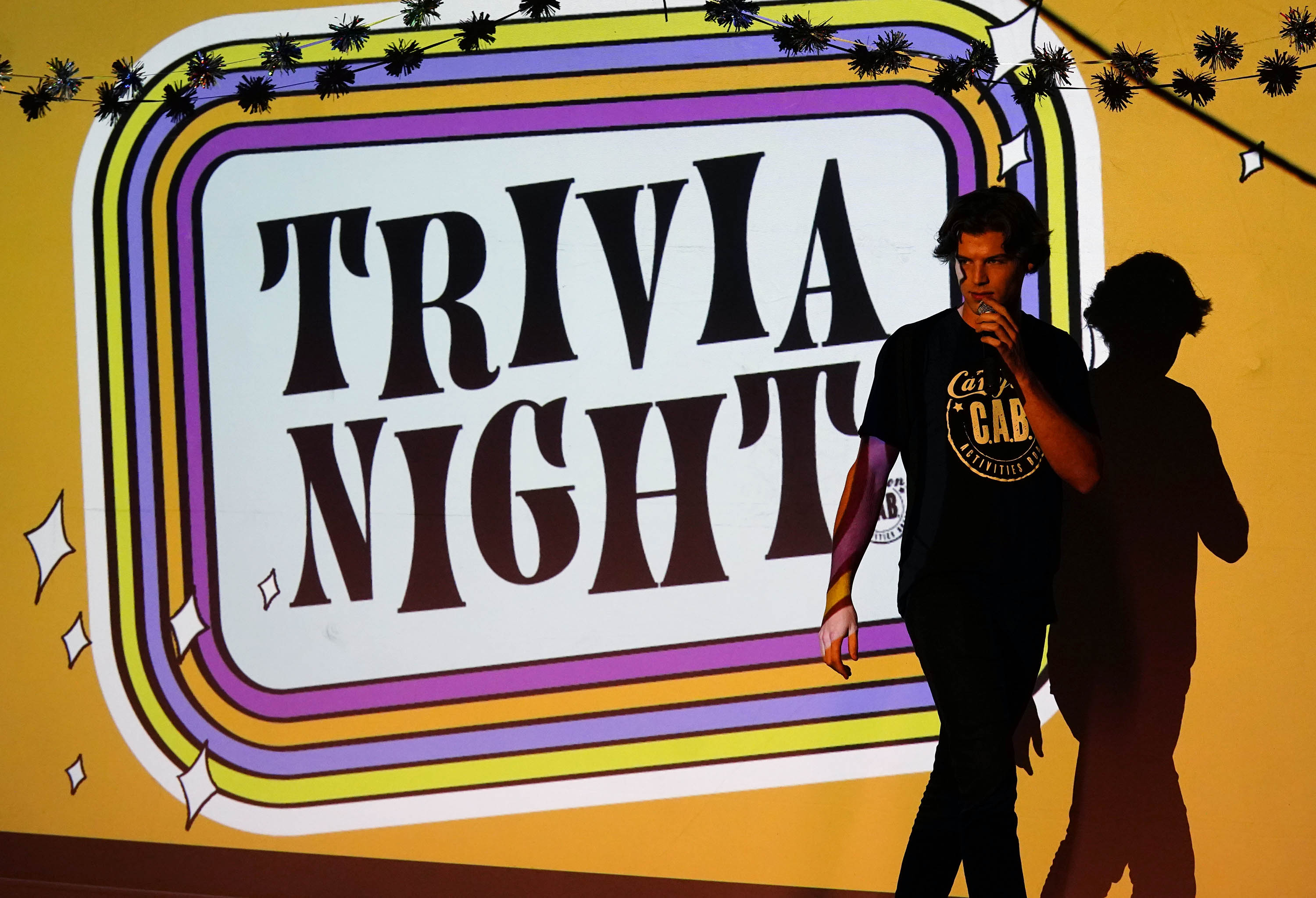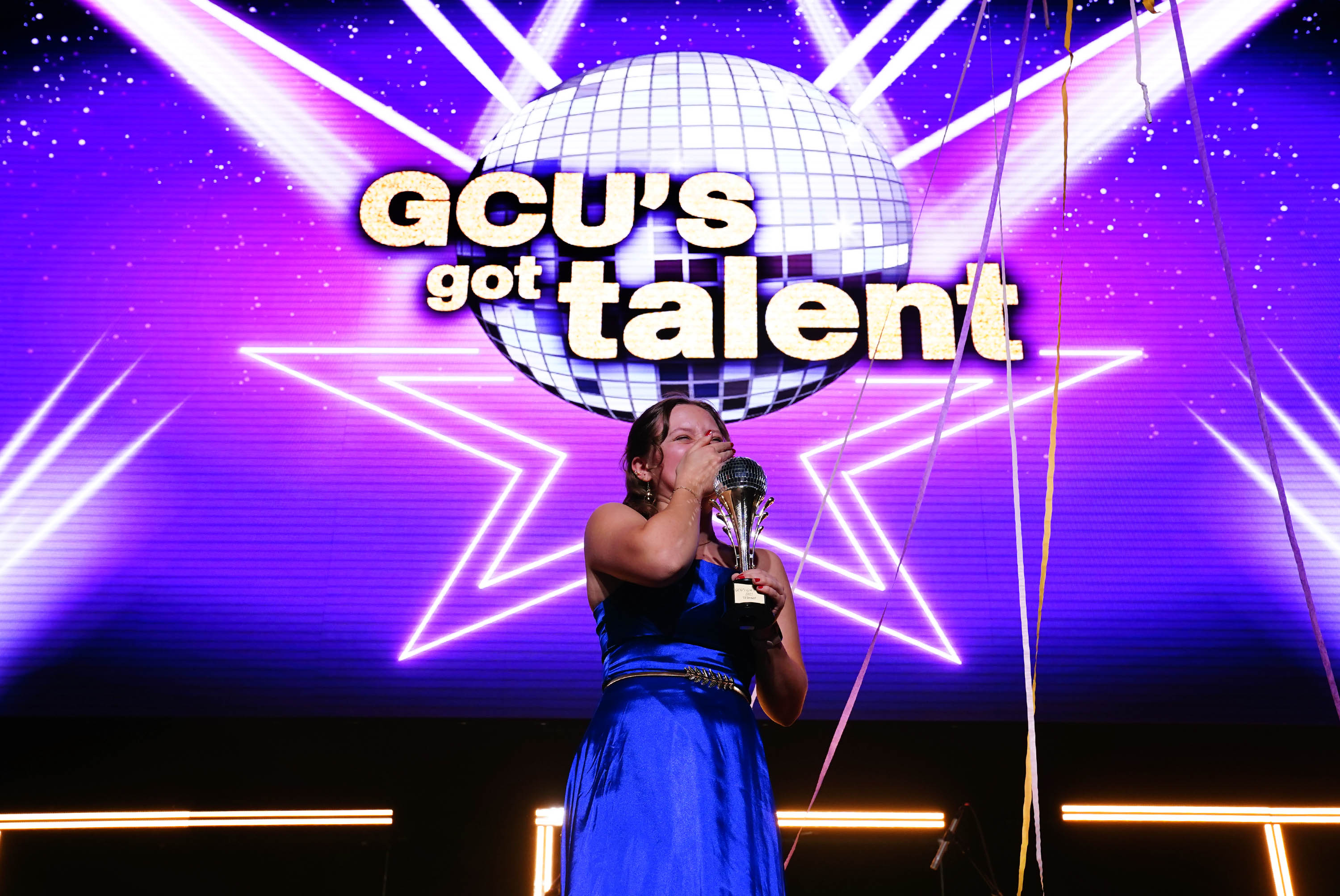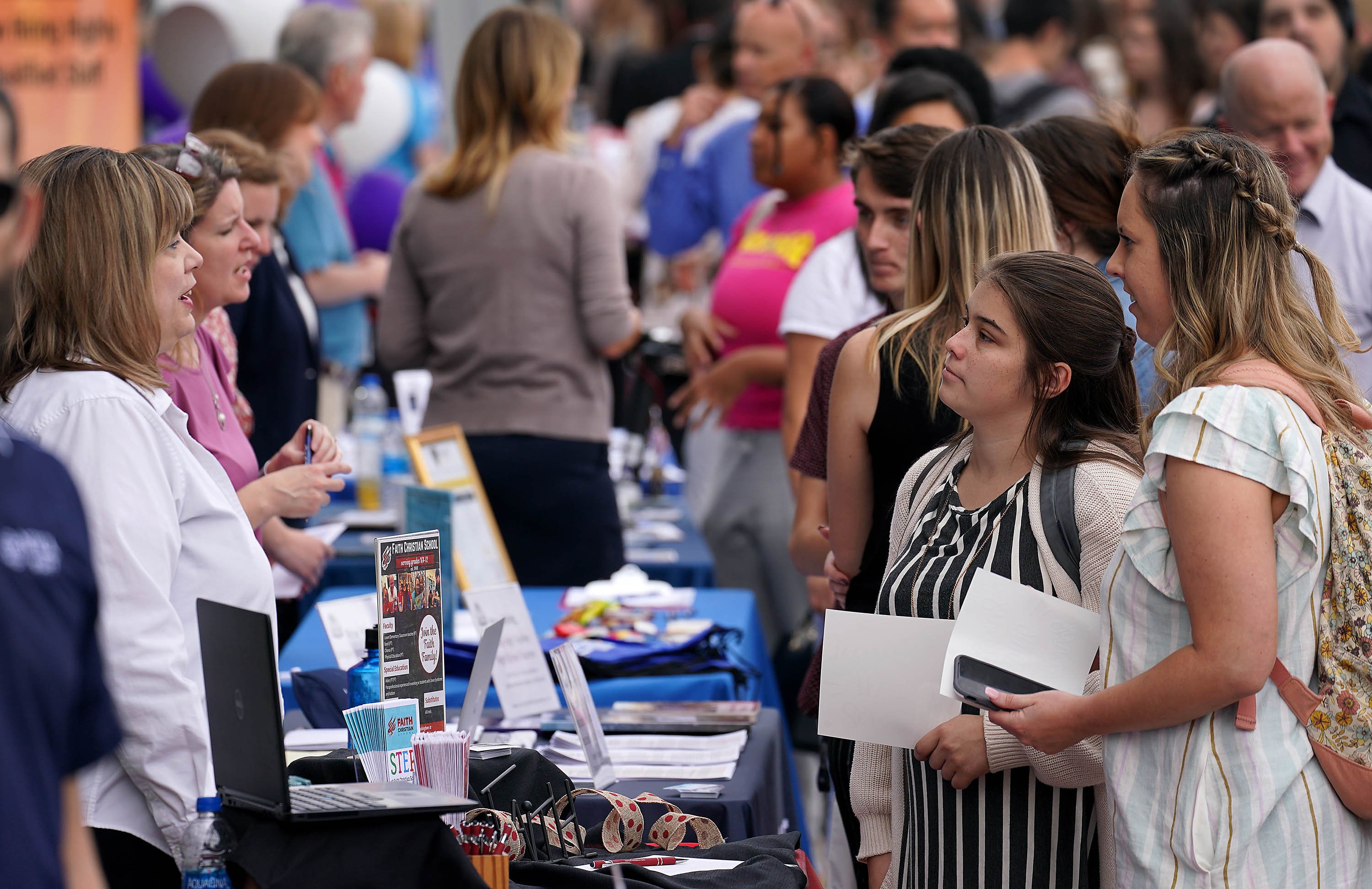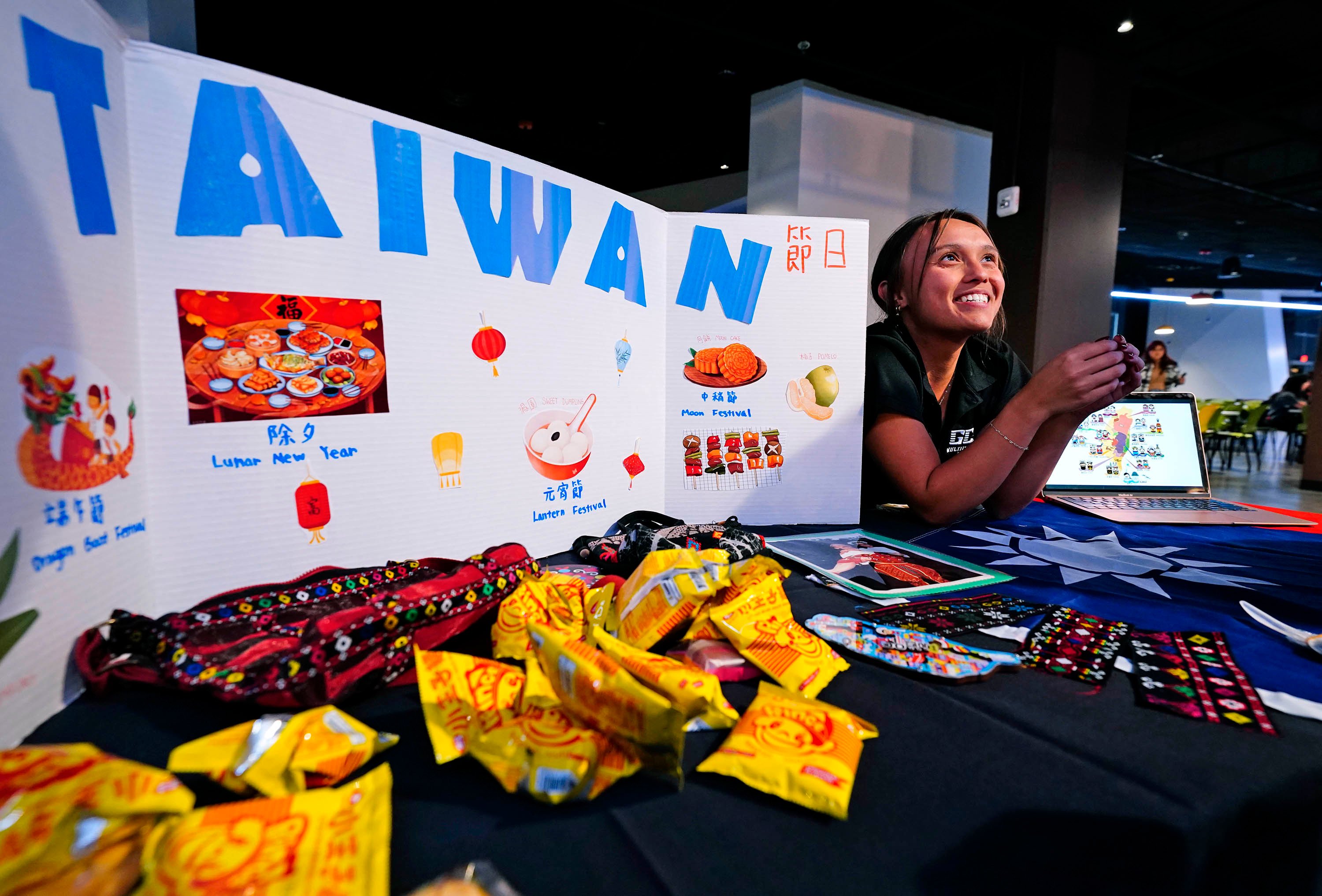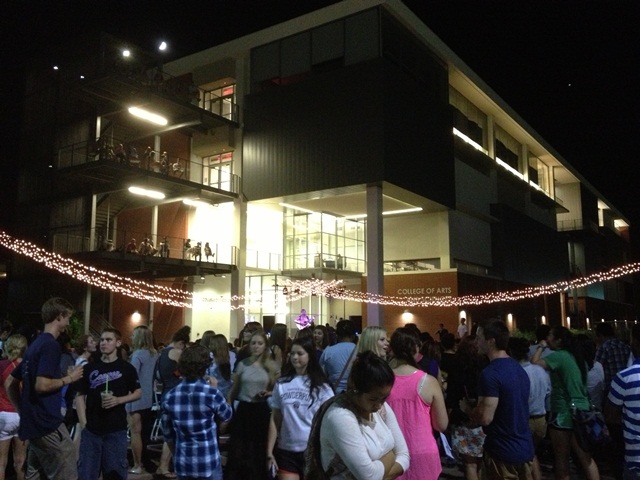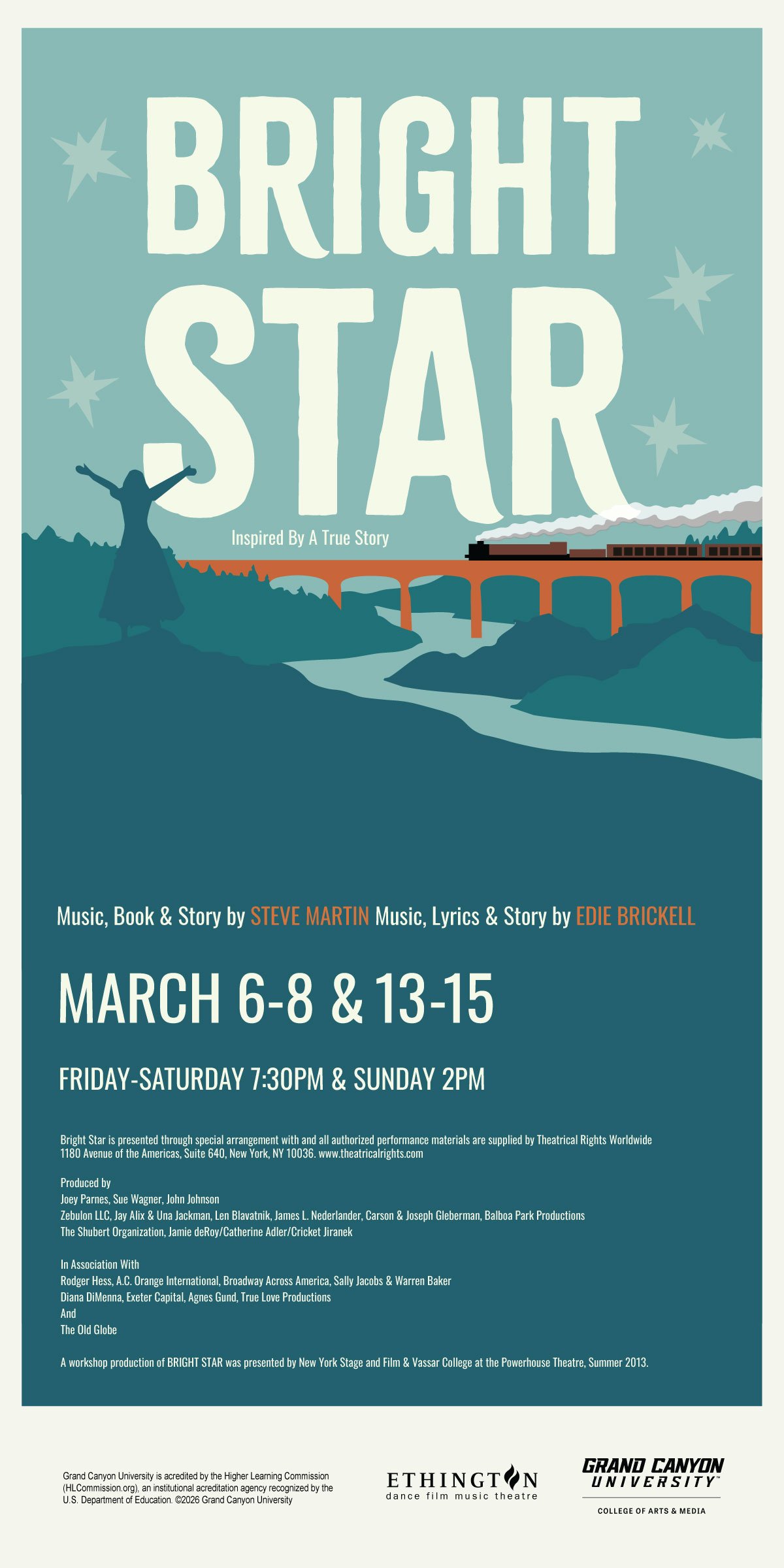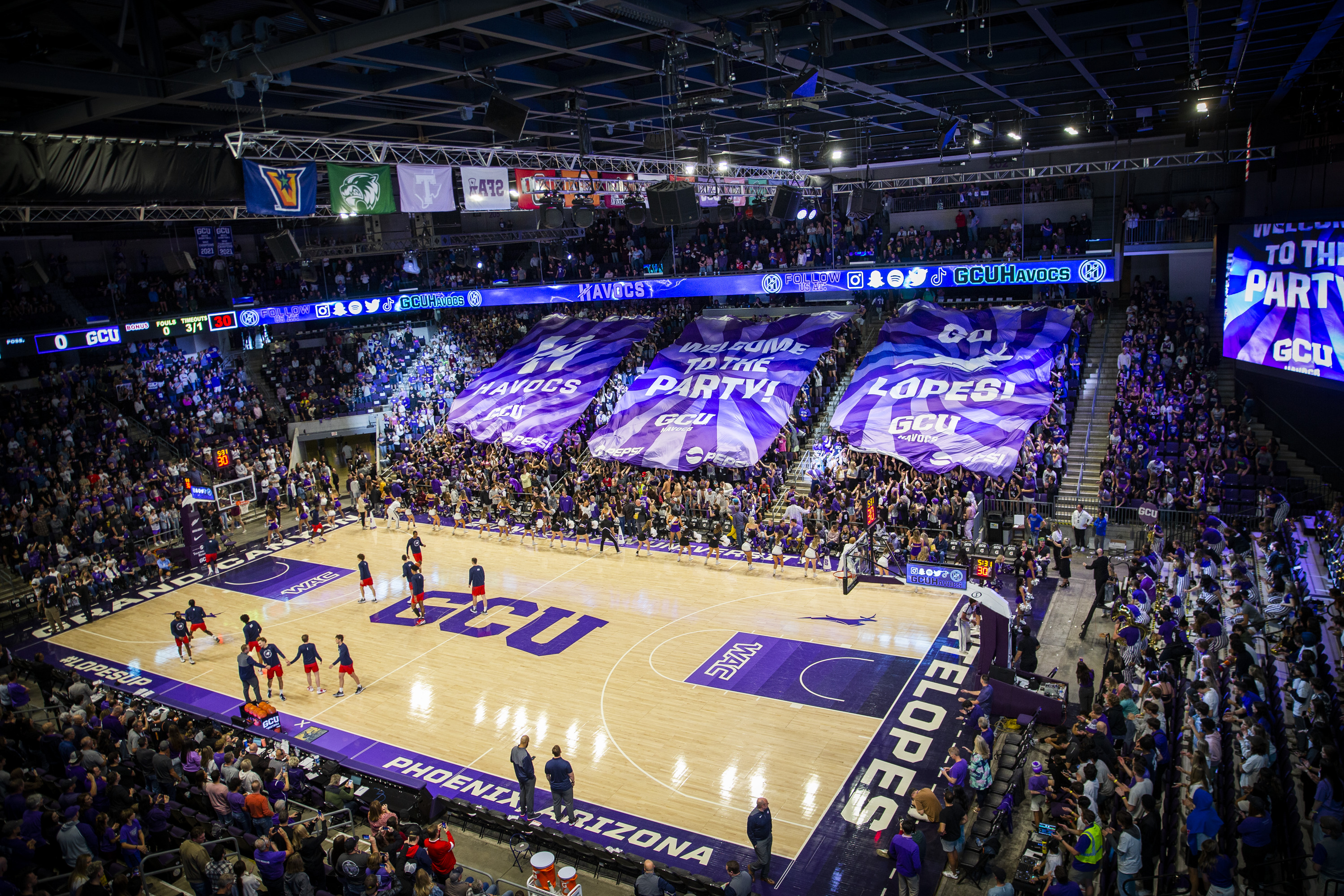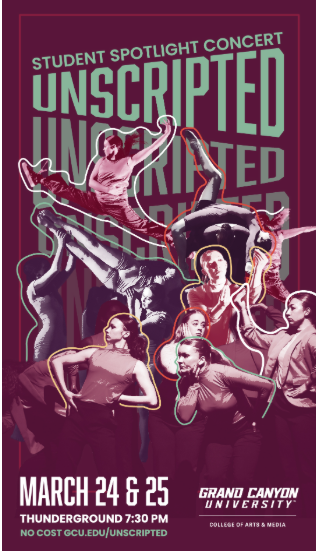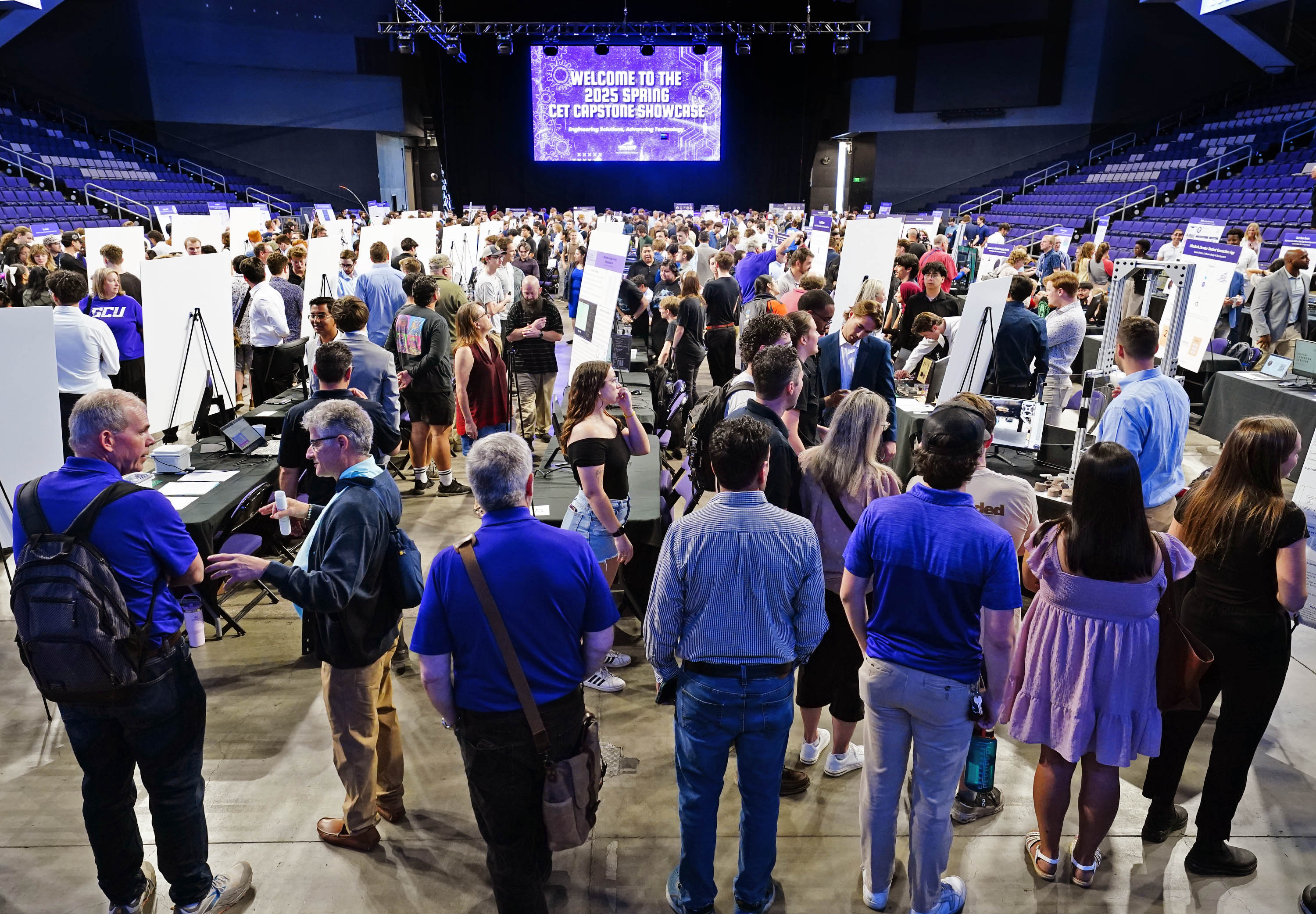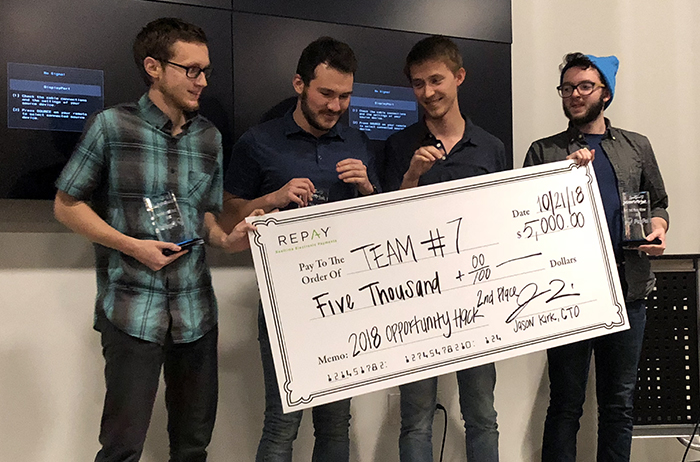
GCU News Bureau
A team of Grand Canyon University students placed second at Opportunity Hack 2018, sponsored by PayPal and several other technology companies, and was awarded a contract for a combined $5,000 prize.
The two-day coding event, which took place Saturday and Sunday, connects local nonprofits with skilled computer engineers and business-savvy volunteers to help solve some of their most pressing technology problems.
The GCU Big Data and IT/Cyber team, made up of students Tom Fowler, Joshua Lee, Thomas Gleason and Christian Taillon, was among 27 teams competing.
They developed a solution, dubbed Survey Stack, to help three nonprofits -- the American Association on Health and Disability, Neurologic Music Therapy Services, and Animals and Humans in Disaster.
The team took home $1,000 from the event and a Statement of Work contract sponsored by Repay. If the team installs its solution at the nonprofits’ place of business on or before Jan. 11, 2019, it will receive the remaining $4,000 of the reward.

The nonprofits presented the volunteers with their problem -- collecting data from surveys, which often requires countless hours of manual data entry with, sometimes, little return on value. In addition to a better way of collecting data, the nonprofits expressed how they also want a more “elegant” way of storing data.
The GCU team developed an interactive web application prototype that allows the user to create survey forms. Those forms then can be turned into a printable PDF. Once a customer fills out the form, the data is loaded back into the application, analytics are produced based on customer responses, and the data can be exported for future analysis.
According to the team, many would-be respondents may be unable to provide data via digital means. Also, a University of Oklahoma study suggests digital surveys have a lower response rate than their offline counterparts.
The team says its app addresses those problems by including a printable PDF.
The College of Science, Engineering and Technology sent four teams to the hack made up of 17 Computer Science, Computer Programming and IT/Cybersecurity students. GCU was the second-largest contingent at the event after Arizona State University, which sent undergraduate and graduate students.
“This is another validation of the strength of our Computer Science with Big Data & Analytics Program, which will be well expanded into the Master of Science in Data Science and the Master of Science in Computer Science,” said GCU Computer Science program lead Dr. Isac Artzi. He was one of eight judges at the event, though he did not judge GCU in the first round, when six finalists were selected. Other judges represented PayPal, GoDaddy, Infusionsoft, MDI, Repay and Galvanize.

Awards totaled $14,500, with a first-place award given by PayPal, a second-place award by Repay and a third-place prize from GoDaddy. Other awards included the Splunk Impact Prize, given to the team whose solution makes a big impact on the community, and the InfusionSoft Keeping it Simple SE prize, which goes to the team that delivers a simple solution that anticipates the needs of the customer and automates the jobs they need done.
This marked the fourth year for the Opportunity Hack, an event brought by partners Galvanize, GoDaddy, InfusionSoft, PayPal, Repay and Splunk.
Click here to see the GCU team’s PowerPoint demo of its app.
























